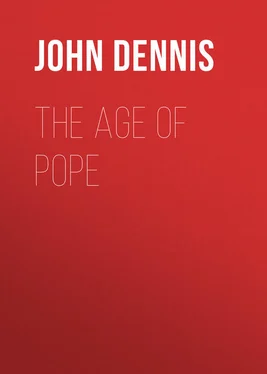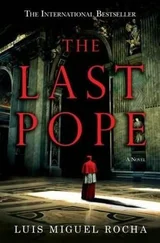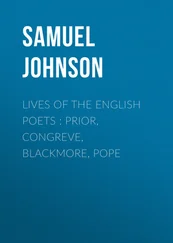John Dennis - The Age of Pope
Здесь есть возможность читать онлайн «John Dennis - The Age of Pope» — ознакомительный отрывок электронной книги совершенно бесплатно, а после прочтения отрывка купить полную версию. В некоторых случаях можно слушать аудио, скачать через торрент в формате fb2 и присутствует краткое содержание. Жанр: foreign_antique, foreign_prose, на английском языке. Описание произведения, (предисловие) а так же отзывы посетителей доступны на портале библиотеки ЛибКат.
- Название:The Age of Pope
- Автор:
- Жанр:
- Год:неизвестен
- ISBN:нет данных
- Рейтинг книги:3 / 5. Голосов: 1
-
Избранное:Добавить в избранное
- Отзывы:
-
Ваша оценка:
- 60
- 1
- 2
- 3
- 4
- 5
The Age of Pope: краткое содержание, описание и аннотация
Предлагаем к чтению аннотацию, описание, краткое содержание или предисловие (зависит от того, что написал сам автор книги «The Age of Pope»). Если вы не нашли необходимую информацию о книге — напишите в комментариях, мы постараемся отыскать её.
The Age of Pope — читать онлайн ознакомительный отрывок
Ниже представлен текст книги, разбитый по страницам. Система сохранения места последней прочитанной страницы, позволяет с удобством читать онлайн бесплатно книгу «The Age of Pope», без необходимости каждый раз заново искать на чём Вы остановились. Поставьте закладку, и сможете в любой момент перейти на страницу, на которой закончили чтение.
Интервал:
Закладка:
Pope has no strong convictions in this poem, but he has many moods. On one page he is a pantheist, on another he says what he probably did not mean, that God inspires men to do evil, and on a third that 'all our knowledge is ourselves to know.' Nowhere in the argument does Pope seem to have a firm standing, and De Quincey is not far wrong in saying that it is 'the realization of anarchy.'
Read the poem for its poetical merits and you will forget its defects. Pope was a superficial teacher, but direct teaching is not the end of poetry. The Essay on Man is not a poem which can be read and re-read with ever-growing delight, but there are passages in it of as fine an order as any that he has composed on more familiar subjects. Pope was, as Sir William Hamilton said, a curious reader, and the ideas versified in the poem may be traced to a variety of sources. Students who wish to follow this track will find all the help they need in Mr. Pattison's instructive notes, and in the comments attached to the poem in Elwin and Courthope's edition. In his Introduction Mr. Pattison observes that 'the subject of the Essay on Man is not, considered in itself, one unfit for poetry. Had Pope had a genius for philosophy there was no reason why he should not have selected a philosophical subject. Didactic poetry is a mistake if not a contradiction in terms. But poetry is not necessarily didactic because its subject is philosophical.'
It is always difficult to define the themes suitable for poetry. Many theories have been formed as to the scope of the art, and poets have been amply instructed by critics as to what they ought to do, and what they should avoid doing. The theories may appear sound, the arguments convincing, until a great poet arises and knocks them on the head. In a sense every poet of the highest order is also a philosopher and a prophet who sees into 'the life of things.' Whether a philosophical subject can be fitly represented in the imaginative light of poetry is a matter for discussion rather than for decision. In the case of Pope, however, it will be evident to all studious readers that he was incapable of the continuous thought needed for the argument of the Essay .
'Anything like sustained reasoning,' says Mr. Leslie Stephen,' was beyond his reach. Pope felt and thought by shocks and electric flashes… The defect was aggravated or caused by the physical infirmities which put sustained intellectual labour out of the question.' 23 23 Stephen's Pope , p. 163.
Crousaz, a Swiss pastor and professor, who appears to have competed with Berkeley for a prize and won it, attacked Pope's Essay for its want of orthodoxy, and his work was translated into English. The poet became alarmed, but had the good fortune to find a champion in Warburton, who for the rest of his life did Pope much service, not always of a reputable kind. We shall have more to say of him later on, and it will suffice to observe here that Warburton, who through Pope's friendship obtained a good wife, a fortune, and a bishopric, was not a man of high character. His sole object was to advance in life, and he succeeded.
The Moral Essays as they are called, and the Imitations from Horace are the final and crowning efforts of the poet's genius. They contain his finest workmanship as a satirist, and will be read, I think, with more pleasure than the Dunciad , despite Mr. Ruskin's judgment of that poem as 'the most absolutely chiselled and monumental work "exacted" in our country.' 24 24 Lectures on Art , p. 70, Oxford.
It is impossible to concur in this estimate. The imagery of the poem serves only to disgust, and the spiteful attacks made in it on forgotten men want the largeness of purpose that lifts satire above what is of temporary interest, making it a lesson for all time.
Pope's venom, and the personal animosities which give the sharpest sting, and in some instances a zest, to his verse, are also amply displayed in the Moral Essays and in the Imitations , but the scope is wider in these poems, and the subjects allow of more versatile treatment. They should be read with the help of notes, a help generally needed for satirical poetry, but it should be remembered always that editorial judgments are to be received with discretion and not servilely followed. There is perhaps no danger more carefully to be shunned by the student of literature than the habit of resting satisfied with opinions at second-hand. Better a wrong estimate formed after due reading and thought, than a right estimate gleaned from critics, without any thought at all.
According to Warburton, who is as tricky as Pope himself when it suits his purpose to be so, the Essay on Man was intended to form four books, in which, as part of the general design, the Moral Essays would have been included, as well as Book IV. of the Dunciad , but to have welded these Essays , which were published separately, into one continuous poem would neither have suited Pope's genius nor the character of the poems; and how the last book of the Dunciad could have been included in such an olla podrida it is difficult to conceive. The poet was fond of projects, and this, happily for his readers, remained one. The dates of the four Essays , which are really Epistles, and appeared in folio pamphlets, run over several years, but were afterwards re-arranged by Pope. That to Lord Burlington, Of the Use of Riches (Epistle IV.), was published in 1731, under the title, Of False Taste ; that to Lord Bathurst, Of the Use of Riches (Epistle III), in 1732; the epistle to Lord Cobham (Epistle I.), Of the Knowledge and Characters of Men , bears the date of 1733; and that To a Lady (Epistle II.), Of the Characters of Women , in 1735. Pope wrote other Epistles, some at a much earlier period of his career, which follow the Moral Essays but are not connected with them. Of these one is addressed to Addison, two are to Martha Blount, for whom the second of the Moral Essays was written; one to the painter Jervas, originally printed in 1717; while another, a few lines only in length, was addressed to Craggs when Secretary of State. Space will not allow of examining each of the Essays minutely, but there are portions of them which call for comment.
The first Moral Essay , Of the Knowledge and Characters of Men , in which Pope enlarges on his theory of a ruling passion, affords a significant example of his incapacity for sustaining an argument, since Warburton, to use his own words, entirely changed and reversed the order and disposition of the several parts to make the composition more coherent. That he has succeeded is doubtful, that he should have ventured upon such a task shows where Pope's weakness lay as a philosophical poet. It is the least interesting of the Essays , but is not without lines that none but Pope could have written. The Characters of Women , the subject of the second Essay , was not one which the satirist could treat with justice. He saw little in the sex save their foibles, and the lines with which it opens show the spirit that animates the poem:
'Nothing so true as what you once let fall;
"Most women have no character at all,"
Matter too soft a lasting mark to bear,
And best distinguished by black, brown, or fair.'
The satire contains one of Pope's offensive allusions to Lady Mary, and the celebrated portrait drawn from two notable women, the Duchess of Buckingham and Sarah, Duchess of Marlborough, from the latter of whom the poet, at one time, despite his unquestionable love of independence, received £1,000. The story, like many another in the career of Pope, is wrapt in mystery.
Читать дальшеИнтервал:
Закладка:
Похожие книги на «The Age of Pope»
Представляем Вашему вниманию похожие книги на «The Age of Pope» списком для выбора. Мы отобрали схожую по названию и смыслу литературу в надежде предоставить читателям больше вариантов отыскать новые, интересные, ещё непрочитанные произведения.
Обсуждение, отзывы о книге «The Age of Pope» и просто собственные мнения читателей. Оставьте ваши комментарии, напишите, что Вы думаете о произведении, его смысле или главных героях. Укажите что конкретно понравилось, а что нет, и почему Вы так считаете.












